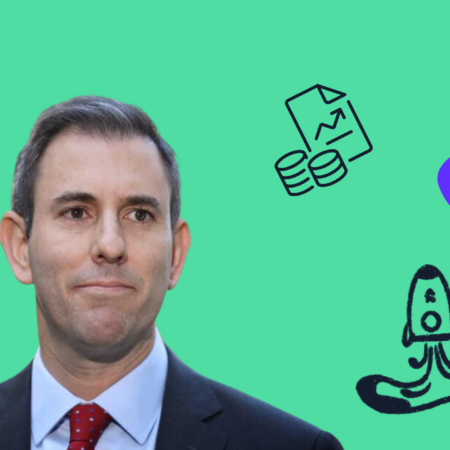What Does a Financial Advisor Do?
For most people, financial advisors are synonymous with having a bit of cash in your pocket. Whilst advisory is certainly a great way (we’d argue the *best* way) to build your wealth, it’s also a service for those who are just starting to venture into the very big, wide, sometimes intimidating world of money – whether you’re a student, someone experiencing their first full time wage or a low income earner. Financial advisory is for anyone wanting to make the most of their hard earned.
To explain why a financial advisor is so beneficial, we need to start with the what. Here’s what you can expect from working with (a good) one.
Key highlights:
- Comprehensive Support Beyond Investments: Financial advisors provide tailored advice covering everything from retirement and tax planning to risk management, helping beginners and seasoned investors alike.
- Building Financial Confidence: Advisors fill in the gaps in financial know-how, from budgeting to superannuation, setting clear goals, and making financial literacy accessible.
- Ongoing Adjustments to Fit Life Changes: Advisors regularly review and adapt plans as life and financial situations change, ensuring a steady path toward financial security.
What Is a Financial Advisor?
A financial advisor is a professional who offers personalised advice on managing your finances, from wealth management to portfolio management. Whether you’re new to investing or looking to secure your retirement, a financial advisor can provide insights and strategies to help you meet your financial goals.
A financial advisor’s role extends beyond just managing investments. They are trained in areas such as financial planning, tax strategies, risk assessment, and retirement planning. Financial advisors offer valuable guidance on estate planning, investment strategies, and income protection.
What Is The Difference Between Financial Planner vs Financial Advisor?
| Feature | Financial Advisor | Financial Planner |
| Core Value Proposition | Product-specific advice, investment management, and short-term financial goals | Holistic financial planning, personalised advice, and long-term financial security |
| Customer Benefits | Access to investment expertise, potential for higher returns, and simplified investment management | Reduced financial stress, increased financial confidence, optimised wealth, and peace of mind |
| Ideal Client | Investors looking for product-specific advice, portfolio management, or short-term financial goals | Individuals seeking comprehensive financial planning, retirement planning, estate planning, and tax strategies |
| Focus | Investment performance, asset allocation, and maximising returns | Long-term financial goals, risk management, and overall financial well-being |
Financial advisors can be beneficial for individuals at various stages of life, whether you’re a young professional aiming to accumulate wealth or a retiree looking to protect your assets, a certified advisor can provide personalised financial advice and support. As a trusted and knowledgeable professional, a financial advisor can help you navigate the complexities of the financial world and work towards a secure financial future.
How Can A Financial Advisor Help You?
#1 Financial advisors listen, ask questions and understand
An initial appointment with a financial advisor is all about sharing your current position, and your future financial goals. Sometimes, an investment advisor will help reshape those goals too. For instance, you might aim to have $100k in the bank in the next 24 months. Why, though? Is it for a house deposit? Is that an amount you feel brings you some level of security? Re-framing your wealth accumulation goals and seeing how financial guidance helps achieve them are some of the biggest perks of working with an advisor.
Having clear financial goals to work towards, and an understanding as to why and how you’re working towards them serves as some of the best motivation to get your financial ducks lined up. We all know vague or unrealistic goals set us up for failure and budget planning sometimes makes this more extreme – have you ever made a purchase (that you probably shouldn’t have) and then thought “oh well now I’ve spent that money, may as well get this other thing too.”? Next minute you’ve got a Dyson Airwrap, a kitten and a new Playstation and that monthly budget has all but dissolved.
Saying no to things that will bring you instant gratification is really hard – but it’s made significantly easier if you have a very big carrot (like your first home or retirement fund) dangling in front of you.
#2 Financial advisors educate you on all things money
For some reason, school missed a very big step: teaching us about money. Financial literacy isn’t a strong suit of many unless you go on to study something in its vicinity at uni. When you don’t have a solid understanding of finance, making smart decisions is nearly impossible.
A financial advisor will fill in the blanks for you. They can provide you with an excellent monthly budget planning framework, break down how mortgage repayments and interest rates work, explain why superannuation is as important as everyone says it is, take the concept of trading shares and break it down into layman’s terms… the list goes on.
Once your financial advisor understands your financial needs and has broken down the steps to get you there (otherwise known as financial planning), it’s then their job to explain that plan in minute detail. Your buy-in is the most important factor in implementing the plan – if you don’t get it, you aren’t fully on board with it, and the likelihood of it coming to fruition is about the same as Essendon winning this year’s flag.
#3 Do The Research
There is no one-size-fits-all when it comes to financial advice and planning. Your stage of life, income, financial goals, assets and line of work (among other things) all all influence the investment strategies you should consider. Each client has a unique financial situation that needs thoughtful financial review.
Once your financial advisor understands your goals, they’ll go off and do their homework. Part of being an advisor means staying on top of industry news, changes and trends anyway – but they really earn their paycheck when doing research for each individual client. Let’s take sorting your insurances out for instance (life, income, TPD etc). Sussing the best price from numerous providers and understanding what that’ll cost you and what it covers is a *lot* of work that you simply would never do yourself. Superannuation is another goodie. Risk levels and investment types are big considerations for most people (those closer to retirement would be taking less financial risks, but those with decades left of super contributions have a bit more wiggle room as a general rule of thumb). Perhaps you value sustainability very highly and only want to invest in ethical funds? With all the fine print that comes with every facet of the finance world, there’s a lot of reading, thinking and playing out of various plans before your advisor will present your next steps.
#4 Financial advisors… surprisingly… make financial recommendations
This one is pretty self explanatory! Your advisor understands your financial goals, has done their research and has formulated a game plan. Then, they’ll come back to the table with their recommendations. This could be on a really small or big scale – working with an advisor doesn’t necessarily mean you’re committing to a lot of work together. It could be a one-off piece of advice on your superannuation fund or a comprehensive wealth management plan covering all areas of your financial world with an in-depth, short and long term plan that the advisor manages into the future. The choice is yours. You can always dip your toe in and start with some basics (hint: everyone should sort out insurances) and then consider whether you’d like to fully dive in at a later date.
#5 Financial advisors help you to plan for phases of life
The transitions between being a student, to having a full time job, buying a house and having a family if you choose to, adding another kid or two and then looking towards retirement are huge ones. You can let life happen to you and cross all your fingers and toes that it works out, or you can choose to control the controllables and give yourself a leg up by working with an advisor to ensure you’re making the best possible financial decisions before, after and during these enormous periods of change.
Maybe you’ve purchased your first home and are looking to upsize but then whoops, covid happened and a baby came a couple of years earlier than you might have assumed… what now? How does it affect your insurances, your budget, your savings goals and your potential loan capacity?
Should you diversify your wealth once you have the real estate sorted and get into shares?
How much money do you need in the bank to retire?
Is your superannuation strategy setting you up for the long haul?
These are big, hairy questions with no singular answer. Money management is one of the biggest sources of stress for individuals and relationships in Australia. Life will give all of us lemons on numerous occasions – it’s how (or even if) we can make lemonade that matters. Poor financial decisions and management can often be fixed to an extent, but starting with solid financial foundations from early on and then making a conscious choice to prioritise your financial literacy and health throughout the following years takes unnecessary anxiety out of the picture and sets you up for success.
#6 Tracking and continued adjustments
Financial advice is not a set and forget scenario. As we know alllll know too well, things change – and quickly *cough* interest rates *cough* recession *cough* inflation. Covid… war. Did we miss anything?
Your financial advisor will stay on top of anything that’s relevant to you: your super fund performance, your investments, and keeping you accountable to savings goals and budgets to name a few. Incomes change, living situations and families change. Financial plans should be agile and your advisor is responsible for making sure they’re still the best way forward at any given point.
Have we convinced you yet? We reckon the chances are pretty good. If you have further questions about financial advisory you can get in touch. We point our clients towards our friends at Future Advisory because they’re the best in the business and who we trust our own finances with.
How to Choose the Right Financial Advisor
When selecting a financial advisor, look for qualities such as trustworthiness, professional knowledge, and objectivity. The best financial advisors are those who prioritise their client’s financial goals over their own interests, often referred to as a fiduciary responsibility.
Another factor is that to ensure you’re choosing the right advisor, consider asking questions about their fee structure, investment philosophy, and specific experience in areas that matter to you. Understanding their approach to financial planning can provide confidence in your decision.
With all the information above, have we convinced you yet? We reckon the chances are pretty good. If you have further questions about financial advisory you can get in touch and we can guide you through the complexities of wealth management and financial independence. We point our clients towards our friendly accountants in Melbourne because they’re the best in the business and who we trust our own finances with.













